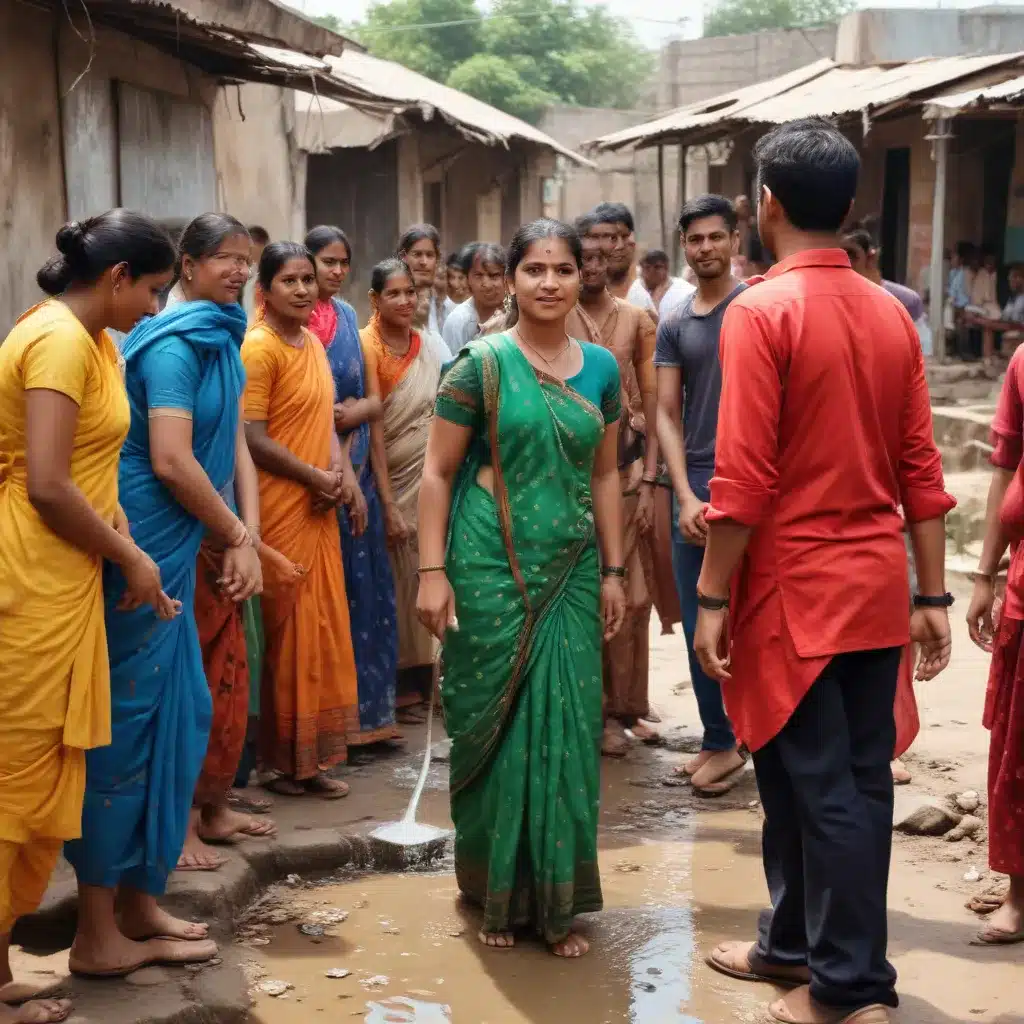
Empowering Frontline WASH Workers to Bridge the Urban Services Divide
Rapid and unplanned urbanization has created a stark divide in access to essential water, sanitation, and hygiene (WASH) services across Hyderabad’s informal settlements. While some residents enjoy reliable and affordable WASH infrastructure, the majority struggle daily with contaminated water, inadequate sanitation, and limited hygiene practices. This urban services divide has devastating consequences, perpetuating cycles of poverty, poor health, and environmental degradation.
To address this critical challenge, the city must empower its frontline WASH workers to serve as catalysts for transformative change. These dedicated individuals, often overlooked, possess invaluable community knowledge and relationships that can unlock lasting improvements in service delivery and community engagement. By investing in their capabilities, local governments can harness the power of frontline workers to bridge the urban services divide and create more inclusive, resilient, and sustainable cities.
Frontline WASH Workers: Connecting Communities to Essential Services
Frontline WASH workers in Hyderabad’s informal settlements play a vital, yet undervalued, role in providing basic services. They include community health workers, sanitation workers, water kiosk operators, and local plumbers and mechanics. These individuals live and work within the communities they serve, forging trusted relationships and gaining deep insights into local needs and challenges.
“As a community health worker, I’m the link between the government and the people. I know everyone in this slum, their problems, and how to get things done.” – Lakshmi, Frontline WASH Worker, Hyderabad
Despite their importance, frontline WASH workers often lack the resources, training, and recognition to effectively fulfill their responsibilities. Many operate in the informal sector, with limited job security, equipment, or institutional support. This undermines their ability to advocate for their communities and collaborate with local authorities to improve WASH services.
Transforming the Role of Frontline WASH Workers
To bridge the urban services divide, Hyderabad must redefine the role of frontline WASH workers, equipping them with the knowledge, skills, and resources to drive community-led change. This transformation involves three key strategies:
1. Invest in Capacity Building and Training
Provide frontline workers with comprehensive training on technical WASH skills, community engagement, and advocacy. Empower them to assess local needs, troubleshoot issues, and effectively communicate with both communities and government agencies.
“We need more training on water quality testing, latrine design, and maintaining community facilities. That would help us better serve our neighborhoods.” – Ravi, Frontline WASH Worker, Hyderabad
2. Formalize and Legitimize their Role
Recognize frontline WASH workers as essential public servants, ensuring they have secure employment, fair wages, and standardized job descriptions. This formal recognition strengthens their ability to collaborate with local authorities and advocate for improved services.
“When the government acknowledged us as vital community health workers, it gave us more respect and influence. Now, we can get things done faster.” – Asha, Frontline WASH Worker, Hyderabad
3. Facilitate Coordination and Partnerships
Establish platforms for frontline workers to regularly engage with government officials, NGOs, and community leaders. Enable them to share insights, coordinate service delivery, and co-create solutions that address local WASH challenges.
“The monthly meetings with the water department and sanitation NGO have been game-changing. We can now jointly plan infrastructure improvements and hygiene campaigns.” – Lakshmi, Frontline WASH Worker, Hyderabad
Unlocking the Potential of Frontline WASH Workers
By investing in frontline WASH workers, Hyderabad can unlock cascading benefits that transform WASH service delivery and community resilience:
-
Improved Service Access and Quality: Empowered frontline workers can more effectively monitor infrastructure, troubleshoot issues, and advocate for marginalized communities to receive reliable, affordable, and safe WASH services.
-
Enhanced Community Engagement: Frontline workers’ deep roots in communities enable them to build trust, gather essential feedback, and co-create tailored WASH interventions that resonate with local needs.
-
Strengthened Partnerships and Coordination: Formal platforms for collaboration between frontline workers, government agencies, and civil society organizations foster cohesive, city-wide WASH systems.
-
Increased Community Resilience: Equipped with skills and resources, frontline workers can help vulnerable households prepare for and respond to WASH-related emergencies, such as disease outbreaks or natural disasters.
-
Improved Health and Livelihoods: Reliable access to safe water, sanitation, and hygiene practices reduces the burden of waterborne illnesses, enabling healthier and more productive communities.
A Call to Action: Investing in Frontline WASH Workers for Urban Transformation
Hyderabad’s path to a more equitable and sustainable future lies in empowering its frontline WASH workers. By enhancing their capacity, formalizing their role, and fostering multi-stakeholder collaboration, the city can bridge the urban services divide and catalyze lasting change.
This transformation requires commitment and coordination from all stakeholders:
- Local Government: Allocate resources for frontline worker training, establish official job titles and career pathways, and create platforms for community-government collaboration.
- Civil Society Organizations: Partner with frontline workers to co-design and implement WASH programs, amplify their voices, and advocate for policy reforms.
- Donors and Development Agencies: Provide funding and technical support to strengthen the skills and institutional capacity of frontline WASH workers.
- Communities: Actively engage with frontline workers, share local insights, and participate in the co-creation of WASH solutions.
By empowering frontline WASH workers, Hyderabad can harness the collective knowledge, relationships, and ingenuity of its residents to build a more inclusive, resilient, and sustainable city. This transformative approach holds the key to bridging the urban services divide and unlocking a brighter future for all.

